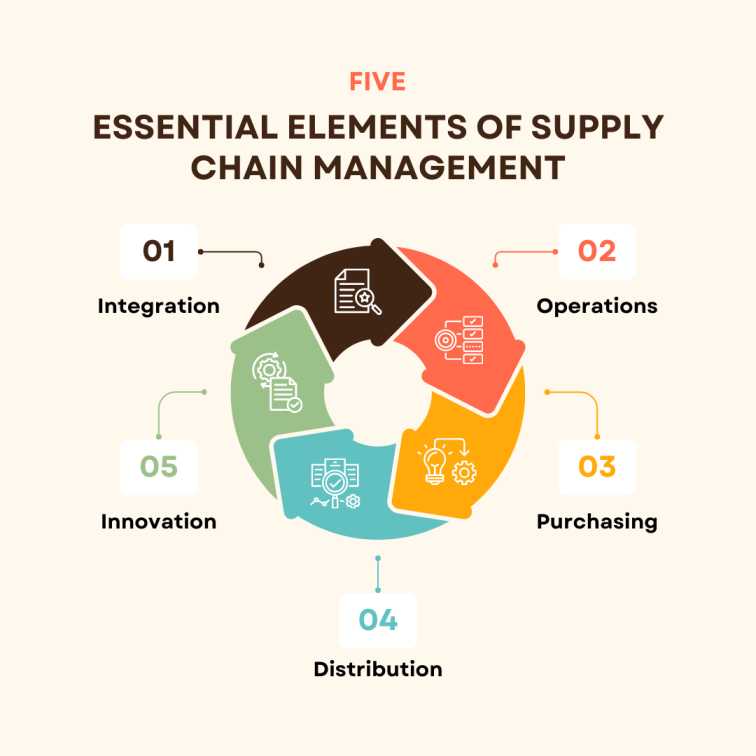Last updated on July 15th, 2024 at 12:49 pm
It is not enough to manufacture a good product in today’s world. Organisations must understand why is supply chain management important and leverage the elements of supply chain management to stay relevant in the industry. Present-day businesses mint profit by increasing the efficiency of their supply chain systems.
What is Supply Chain Management?
A supply chain system is a network of activities that starts with sourcing the right vendors with calculated inventory management and routes through different production processes. It finally culminates with delivering the product on time to its end customer through a series of distribution networks.
The whole cluster of activities is controlled through automation. If you want to leverage the perks of a lucrative future, you can seek a career in supply chain management (SCM).
Why is Supply Chain Management Important?
The benefits of supply chain management are multifold. Some of the key benefits are listed below:
- The main elements of supply chain management is pivoted around data-based planning. The model is flexible and can successfully accommodate sudden changes in business parameters.
- The supply chain network works on time-tested historical data. Thus, a big pool of information helps the system work effectively.
- Inventory management is simplified through the modern supply chain system, that automatically generates reorder levels or excess inventory alerts. Thus, the cost of inventory can be controlled.
- Supply chain management has revolutionised the logistics and transportation system and the way cargo is handled. Quick return of faulty or damaged products is another modern-day feature that has added reliability to the business.
- The supply chain system enables organisations to manage risk. Its advanced alert system helps handle and mitigate business risks effectively.
- A factor which makes a difference is the delivery time. The supply chain system has greatly improved the response time to end customers by a huge margin compared to earlier conventional systems.
- The predictive analysis model is another key benefit of using a supply chain system. This model helps the organisation choose the right business with innovative products and discard the age-old, obsolete ones.
- The supply chain system provides transparent communication to all stakeholders, quickening the process and making it error-free.
- One of the key elements of Supply chain management systems is increasing the productivity of organisations.
- SCM deals with predictive analysis models for new or innovative products and enables the organisation to decide on the same.
Five Essential Elements of Supply Chain Management

Though there are quite a few elements of supply chain management, we shall discuss the five most important ones here. They are as follows:
Integration
Seamless collaboration and communication between different supply chain stakeholders, like vendors, distributors, etc., and within the primary manufacturer’s different functional wings and departments is crucial. This error-free and transparent process is known as integration.
Operations
The most important functionality of a supply chain is operations. The operation provides accurate information regarding an organisation’s inventory position, backlog orders, real-time production schedules, and production and distribution forecasts.
Operations help the business detect upcoming probable challenges or risks. The system works towards mitigating the same to make the process smoother and increase profit.
Operational efficiency is one of the major elements of supply chain management, as it improves the profitability of the organisation. It makes the supervisor’s work easier by helping him determine and optimise resources for each production sequence.
Purchasing
Procurement of raw materials, finished components, and specialised services is an integral part of production. Procurement also determines what goods, equipment, and services must be available internally for the organisation. These constitute the purchasing function of the supply chain system.
This function is important because sourcing good raw materials ensures better-quality products. This function utilises the demand forecast capability of the supply chain to optimise procurement and save enormously in inventory, thereby saving on cost.
Distribution
One of the other important elements of supply chain management system is distribution. The ordered products or services should reach end customers within a committed time frame. Successful accomplishment in this function brings satisfaction to the client. Return of wrong or damaged products and re-delivery of the correct ones are also functions of the distribution system.
Logistics plays an important role in this function. There is always room to optimise and improve upon the existing logistics network. An efficient distribution system brings in customer delight.
Innovation
With all the above elements of supply chain management in place, proper planning and innovation are the game changers for an organisation. Innovation may be applied to any or all four elements: integration, operations, purchasing, and distribution. The sole purpose is to bring down the overall cost and cycle time, thereby generating a profit and creating a happy customer base.
Career in Supply Chain Management
Today’s market is highly competitive. The future of supply chain management is lucrative, and companies prefer to hire qualified supply chain managers, who play pivotal roles in moving goods while keeping environmental impacts in mind. With the introduction of artificial intelligence and blockchain, a career in supply chain management has become extremely lucrative for today’s young professionals, both in terms of compensation and excitement.
After completing an undergraduate degree, an aspirant must complete a supply chain management course from a reputed institute. To understand what is supply chain management in detail, the core subjects should include Financial Accounting, Marketing Management, Financial Accounting, Organisational Behaviour, Economics, Statistics, Corporate Communication, Cost Accounting and Human Resource Management. The elective or specialisation subjects are Principles of SCM and Logistics, International Trade, Warehouse Management, Inventory Management, Operations, Product and Brand Management, etc.
Any candidate with an undergraduate degree can enrol in the supply chain course. However, a Commerce graduate with a tech-savvy attitude or a software engineer with an affinity for business, finance, and commerce will be prospective recruiters’ preferred candidate.
After completing a supply chain management course, a prospective candidate may apply for professional opportunities in the domestic or overseas port sectors and dockyards. They also have vast scope in import-export companies and SCM logistics or warehousing companies.
Conclusion
This field will enable an aspirant to choose a modern and tech-savvy career in the present-day world. Logistics, operations, procurement, warehousing, logistics, and distribution network management are some functional elements of supply chain management system an aspirant may choose from. The career is challenging but highly rewarding, as well.
The Advanced Certificate In Supply Chain Management And Analytics at Imarticus, offered in collaboration with CEC and IIT Roorkee, will give prospective candidates a perfect career start in the future of supply chain management. The duration of this supply chain management course is 6 months.

